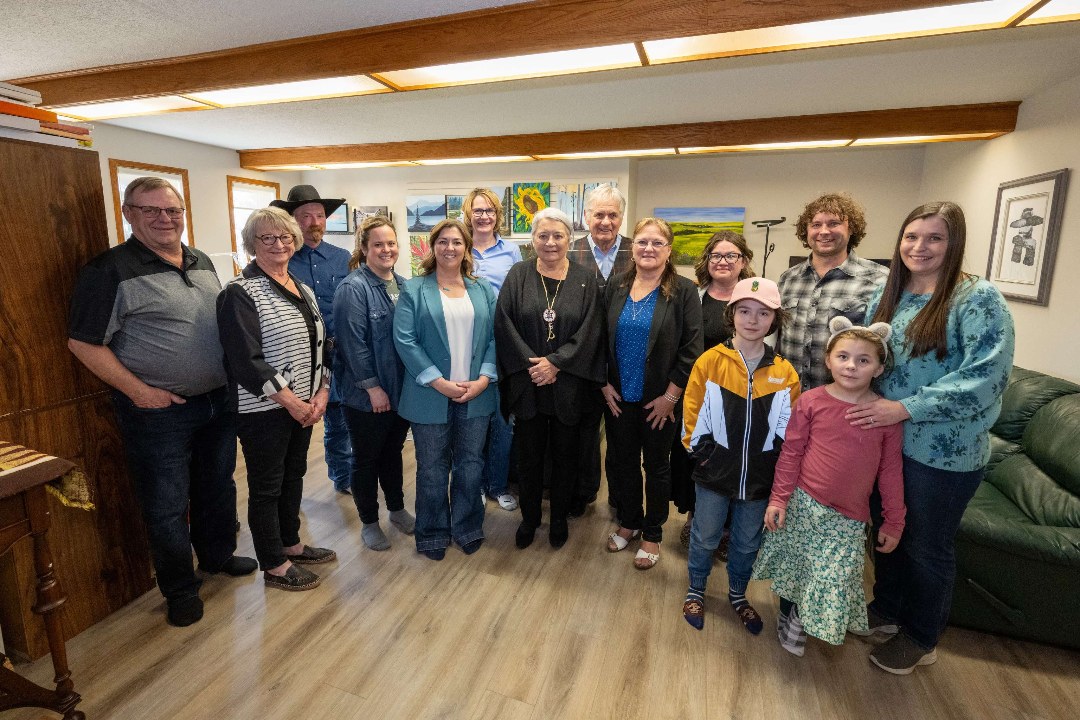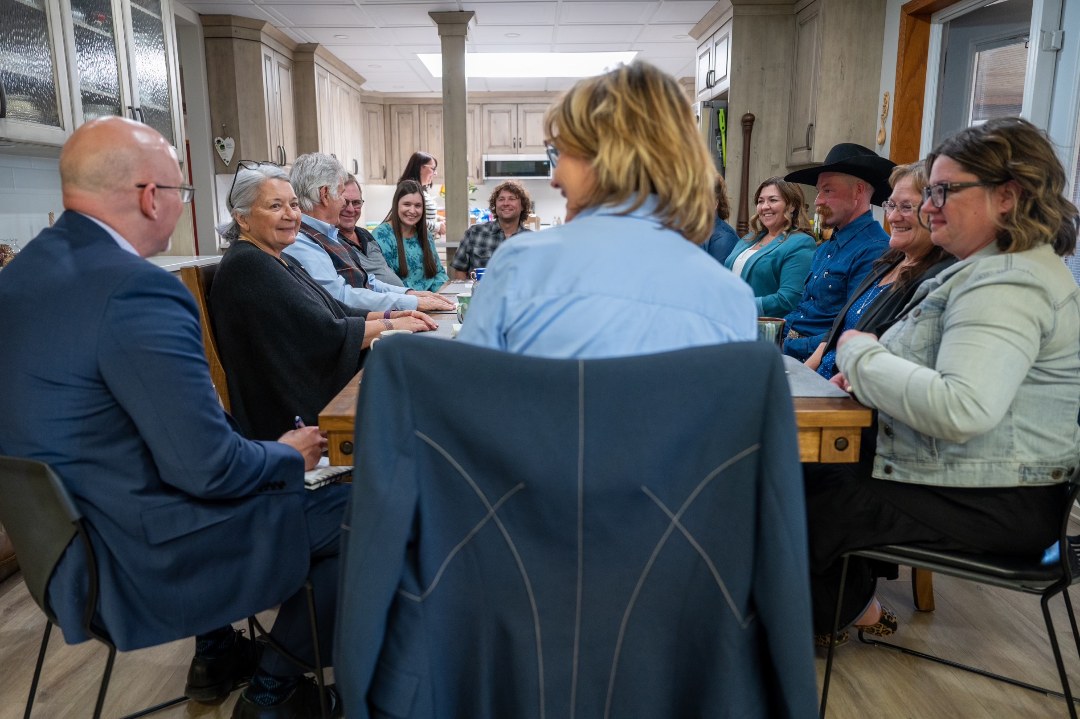
Farmer and rancher mental health focus of Governor General discussion
Learning to seek help and breaking the cycle of silence on mental illness. That was the focus of a recent roundtable discussion between Her Excellency the Right Honourable Mary Simon, Governor General for Canada, and Saskatchewan partners SaskAgMatters, the University of Saskatchewan (USask) Canadian Centre for Rural and Agricultural Health (CCRAH), and the Sask Polytech FARMh program.
Tuesday’s meeting was hosted by two generations of the Kruger family at their farm near Aberdeen, Sask.
Invited to the roundtable were the Saskatchewan partners working to support farmer and rancher mental health. The roundtable was moderated by Dr. Shelley Kirychuk (PhD), director of the CCRAH at USask. Partner representatives included Kendra Ulmer, manager of CCRAH’s Agricultural Health and Safety Network (AHSN), SaskAgMatters directors Cynthia Beck, Cyle Stewart, and Sharalee Laventure, and Dr. Michelle Pavloff (PhD), who leads the Farmer and Rancher Mental Health (FARMh) initiative at SaskPolytech and is the research director of SaskAgMatters.
“The Governor General, and all those present at the roundtable, are passionate about addressing the mental health needs of those living in rural areas,” Kirychuk said.
Kirychuk explained that the meeting had been planned for some time, after the Governor General’s office had reached out to the Saskatchewan partners nearly a year ago.
“Having the discussions at the kitchen table with coffee and cookies, and at a multigenerational farm, made for an intimate setting. It set the stage for open and personal discussions about mental health and the dire situation for those living in rural areas. It felt like a discussion with a friend,” Kirychuk said.

Farmers and ranchers have their own culture, which creates barriers for mental health support. These barriers include limited access to care nearby and having to spend time within their counselling sessions explaining the basics of agriculture to therapists who do not understand the culture of agriculture.
Research shows that Saskatchewan farmers and ranchers are in crisis when it comes to mental health. It is an isolating and stressful way of life, and there is a stigma against asking for help.
Research also indicates that farmers and ranchers are less likely to reach out for help, and more than twice as likely as others to contemplate suicide. In a recent survey, 57 per cent reported anxiety and 34 per cent met the criteria for depression, while nearly half reported high levels of stress.
SaskAgMatters was created to support Saskatchewan farmers and ranchers to access mental wellness supports that are affordable and accessible, and that they feel comfortable using. Knowing that the counsellors on the other end understand agriculture is important, Kirychuk said.
Since the early 1990s, the CCRAH has been engaged in research and building resources to support mental health for farmers, such as the Saskatchewan Farm Stress Line. The SaskAgMatters partnership extends that work.
Kirychuk said the Governor General was delighted to hear that Saskatchewan researchers at both USask and SaskPolytech are working with rural communities throughout the province to better understand and support rural mental health.
The Governor General’s visit and roundtable highlighted both the need for the support and celebrated what Saskatchewan partners are doing to meet that need.

